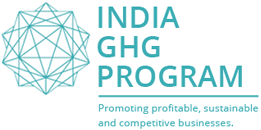
Pavan Sukhdev visited WRI on October 3, 2012.
“To tell the story of the corporation is to tell the story of a grand bargain gone awry,” says Pavan Sukhdev in his new book, Corporation 2020: Transforming Business for Tomorrow’s World. It’s a bold statement, but he backs up his claim persuasively. While many companies are reaching record profits, they’ve oftentimes come at the expense of ecological degradation, rising greenhouse gas emissions, unemployment, spikes in food and fuel costs, and social inequalities.
But Sukhdev has developed what he believes is a framework for shifting the private sector towards a greener, more equitable economy. WRI recently hosted Sukhdev at our Washington, D.C. office to discuss his new book and his vision for the future. The founder of GIST Advisory and former head of UNEP’s Green Economy Initiative joined a panel discussion with WRI’s Managing Director, Manish Bapna, and Naoko Ishii, CEO of the Global Environment Facility.
“Pavan has written a remarkable new book,” said WRI’s president, Andrew Steer, who opened Wednesday’s event. “It not just a book, but really a campaign to change corporations in four viable ways.”
The 4 “Planks” for Corporate Sustainability
Sukhdev’s framework for shifting the private sector towards greater social and environmental sustainability includes what he calls the “four planks of change:”
Accounting for externalities: Many of the resources corporations regularly use and extract—water, minerals, trees, etc.—exist in the public space, and therefore come cost-free. Internalizing these externalities—or assigning an economic value to them—can help corporations measure, report, and manage their social and environmental impacts.
- Taxing resources: Companies currently face corporation and income taxes, but, according to Sukhdev, there’s a missing revenue stream: resource taxes. For example, taxing mining companies on the minerals they extract would incentivize sustainable management and better environmental stewardship.
- Limiting leverage: Many companies—from banks to airlines to hedge funds—have become “too big to fail.” “This constant increase in size coupled with huge amounts of leverage leads to moral hazard,” Sukhdev said.
- More responsible advertising: “Advertising is the single biggest driver of excessive demand,” Sukhdev said. Moreover, advertising today focuses on the need to purchase more and more products. A more sustainable method, Sukhdev argues, is taking a life-cycle approach, advertising how long a product will last, where its materials come from, and how to properly dispose of and recycle it.
These “planks” aren’t an exhaustive list—Sukhdev acknowledges that dozens of other promising ideas and strategies exist. But embracing these principles now can help move the private sector towards greater sustainability in 2020.
“The framework provides a very clear, accessible way to think about the type of change we need in our economic system,” said Bapna. “It’s a very manageable set of reforms—they’re ambitious, but all of these are being talked about today and are do-able.”
WRI and Moving Businesses Toward Sustainability
Sukhdev’s corporate vision aligns with much of the work WRI does in the business sector. Our Corporate Ecosystems Services Review provides companies with a structured methodology to manage business risks created by a dependence on ecosystems and natural resources. Our Coastal Capital series of publications conducts economic valuation studies of mangroves and coral reefs in five Caribbean countries. WRI’s Aqueduct project provides an online mapping tool that helps corporations identify and manage current and projected water risks. And the Greenhouse Gas (GHG) Protocol is the most widely used international accounting tool to measure, manage, and eventually reduce greenhouse gas emissions.
The Future of Business
Revamping the way corporations do business isn’t the only way to move toward a more sustainable future, but it is one of the most important. As Sukdhev noted, business operations create wide-ranging impacts—on poverty and inequality, the environment and ecosystems, unemployment, politics, and communities. “The challenge really is that we need a change in the private sector,” Sukhdev said. “Otherwise, we won’t get the transformation we seek—switching from the brown economy to the green economy.”
